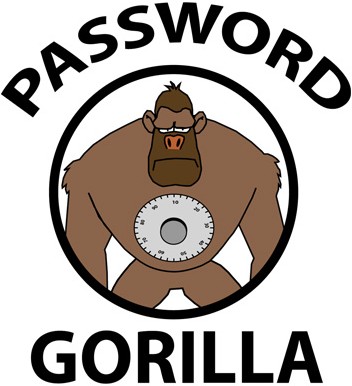Archive: August 2005
Welcome to my web log
Welcome to NoApparentMotive.org, my space on the World Wide Web. For the moment, the primary purpose of the site is to bring together, in one place, the writing I've done on economic issues over the last decade or so. I'll also use the page as an infrequently updated blog and as a place to post other material of interest to me.
If you'd like to give me feedback about content or style, please send an email to john [at] NoApparentMotive [dot] org.
First Link
August 28, 2005
NoApparentMotive has had its first external link to the site. TuxMobil, dedicated to "Linux with Laptops, Notebooks, PDAs, Mobile Phones and Portable Computers", has linked to the NAM page describing my experience with Ubuntu 5.04 on my IBM Thinkpad X40 laptop.
So, in the spirit of framing a shop's first bill, here's a link to the TuxMobil page with the NoApparentMotive link. I hope it doesn't produce an infinite feedback cycle.
NAM's CSS and XHTML Validate
August 27, 2005
After a bit of work, I've succeeded in producing a Cascading Style Sheet (CSS) and XHTML code (the "language" that this web page is written in) that "validate." In short, this means that the "No Apparent Motive" page complies with web publishing standards established by the World Wide Web Consortium (W3C).
Web standards are important for many reasons. First, web pages that meet web standards are more likely to be compatible across different browsers. A notable exception is Microsoft's Internet Explorer (IE), which generally ignores agreed upon web standards in the company's efforts to establish IE as a de facto standard. Which is, of course, a second reason that web standards are important. They function as a form of resistance to Microsoft's monopoly power, by creating a viable alternative to IE. Third, web standards also help to produce leaner and cleaner code, by catching typos and syntax errors.
Gorilla Password Manager
August 21, 2005

A friend recently had his laptop stolen from his apartment. Correctly, his biggest concern wasn't coming up with the money to buy a replacement computer, but rather what might happen if important personal and financial information stored on the laptop fell into the wrong hands. (Lucky for him, no one seems to have run up his credit cards or cleaned out his bank accounts --yet.)
One important step that almost every user of a computer should take is to store sensitive login information (login id's and passwords) in an encrypted file using a "password manager." When you login to an e-commerce site, for example, you call up the password manager, ask it to open your encrypted password database, then enter your master password, after which you have access to your private information. One major advantage of a password manager is that you can use strong passwords, which are much harder to crack --and remember-- than your birthday, pet's name, or favorite sports team. You can also use your password manager to store bank and credit-card PINs, lock combinations, and credit-card numbers (in case you have to report them stolen).
I've been using --and liking-- Oubliette, a free (Mozilla Public License) password manager that organizes and encrypts login id's and passwords in a single file. The only drawback I can see to Oubliette is that it only runs on Windows. Now that I am using more GNU/Linux machines than Windows machines, I've decided to switch to a password manager that I can use with both GNU/Linux and Windows.
For the moment, at least, I'm experimenting with Password Gorilla, a free (GNU General Public License) password manager that runs under GNU/Linux, Mac, and Windows.
So far, so good. The look and feel of Gorilla is not as nice as Oubliette, but I like being able store a Gorilla-encrypted login id and password data base on a USB flash drive and use it on either GNU/Linux or Windows machines. I haven't tried it, but the Gorilla home page says that you can copy the Windows executable file onto a USB drive (1.5 megabytes) and then run Gorilla from any Windows machine.
The only really annoying thing about Gorilla is that I had to hand enter all of my login ids and passwords from a text version of my original Oubliette data base. I would have preferred to import the data directly from the text file.
One installation suggestion for GNU/Linux. Under GNU/Linux you actually run Gorilla in a self-contained scripting program called tclkit, which you'll need to install first (installation is easy, just follow the instructions on the Gorilla page or at tclkit). The Gorilla home page then suggests the following:
After following the installation instructions for tclkit, you should be able to run Password Gorilla by typing:
tclkit gorilla-1.2.kit
at the console. If desired, rename the ".kit" file as "gorilla", assign execute permission (i.e., chmod +x gorilla), and move both tclkit and "gorilla" to a directory in your "$PATH". After that exercise, Password Gorilla can be started by typing gorilla at a console.
This procedure works fine, but I found it easier to create a tiny shell script, which I called "gorilla", marked as "executable" (chmod a+x gorilla"), and copied into my /usr/local/bin directory:
#!/bin/bash
cd /home/john/software/gorilla/
./tclkit-linux-x86-static.upx.bin gorilla-1.2.kit
In the example above, I've copied both the tclkit and gorilla-1.2.kit files into the /software/gorilla subdirectory of my home directory. I can now run Gorilla from the command line in a terminal, or from a launcher I created on my desktop. Let me know if you have any better ideas.
New IMF report on Iraqi Economy
August 20, 2005

The IMF has released a remarkably upbeat assessment of the state of the Iraqi economy. At a press briefing to release the staff report, Lorenzo Perez, Deputy Director, Middle East and Central Asia Department told journalists that the IMF is "reasonably optimistic" about the medium-term prospects for the Iraqi economy and that "Iraq has achieved a reasonable degree of stability given the very difficult circumstances that it faces."
Apparently not a reasonable enough degree of security for IMF staff to venture there as part of their preparation of the report. As Adam Bennett, Assistant Director, Middle East and Central Asia Department explained to a reporter at the same event:
QUESTIONER: Yes, I would like to know [inaudible] that meeting, how many people were there, how did you collect the data, if you could explain that.
MR. BENNETT: We're in regular contact with our Iraqi counterparts. We didn't actually go to Baghdad. We communicate by teleconference, videoconference, and we also meet with them in locations in the region around Iraq. And this has proved to be a very effective way of exchanging views and discussing the issues with our counterparts, including the development and flow of data, which we have included in this report, as well as in the policy dialogue, all of which are reflected in this report. So we deal with Iraqi officials, government ministers from the key ministries --the Ministry of Finance, the Ministry of Oil, Ministry of Planning, and the central bank of Iraq-- in this way.
QUESTIONER: Do you have anyone there in Iraq?
MR. BENNETT: No, we have no office in Iraq at this point.
QUESTIONER: [inaudible] anyone from the IMF [inaudible]?
MR. BENNETT: No, we don't actually go to Baghdad itself. As I said, we meet with our counterparts in locations in the area, outside of Iraq.
You can read the full transcipt here.
Critical Mass Ride Against War
August 17, 2005

As part of the multi-day series of protests against the war in Iraq (see post of August 13, 2005, below), Critical Mass will ride on Friday, September 23. The local DC Critical Mass page has the details, but the basic plan is to meet at Dupont Circle and set off at 6pm.
For more information on local Washington, DC, peace activities, check out the Washington Peace Center.
Ubuntu Linux on IBM Thinkpad X40
August 17, 2005

I've recently installed Ubuntu 5.04, a well-designed and user-friendly version of the GNU/Linux operating system on my IBM ThinkPad X40. Ubuntu replaced Redhat's Fedora Core 3, which ran well enough, but did not support several important features of the X40. I've written a short summary of experience with the X40 under Ubuntu, with comparisons to the machine using Windows XP (Service Pack 2) and Fedora Core 3.
Anti-War Mobilization in Washington
August 13, 2005

United for Peace and Justice and scores of other groups from around the country are organizing a massive demonstration in Washington, DC, on September 24, 25, and 26 to protest against the war in Iraq. For more information, check out the UPFJ page.
According to UFPJ, the three days of activities will include "a major march, rally, and festival on Saturday, September 24; an interfaith religious service and day of grassroots trainings on Sunday, September 25; and a large-scale grassroots lobbying day and mass nonviolent direct action and civil disobedience on Monday, September 26."
The mobilization also overlaps with the 2005 fall meetings of the International Monetary Fund (IMF) and the World Bank, which also usually draws a large crowd of protestors.